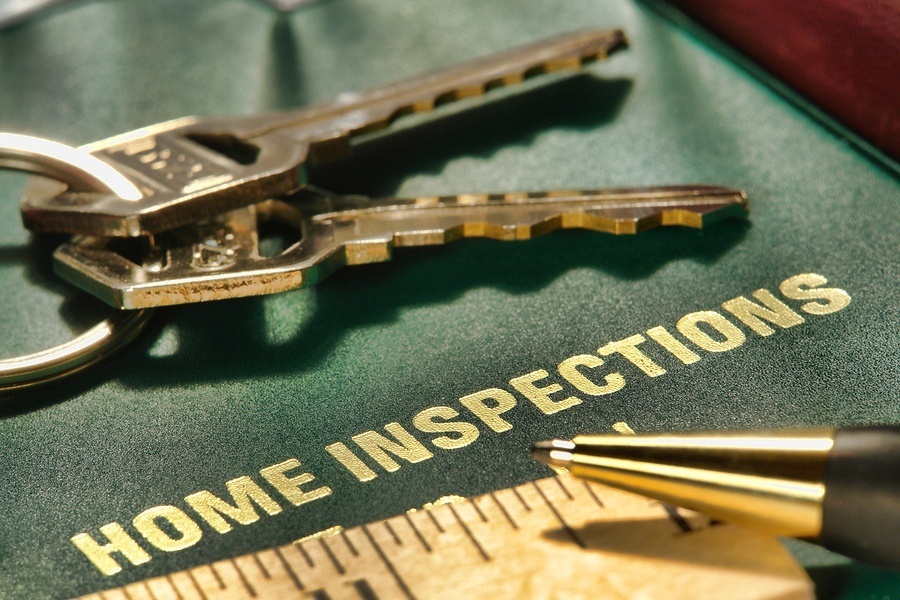Home Inspection When Selling Your House
Home inspections are a big part of the house selling and house buying process. They can either help or hurt a sale price by making the property feel more or less attractive to buyers. Receiving an offer on your property is a big deal, but most offers hang on the results of the inspection, which is why it’s important to be prepared for the inspection. Here are Duke Warner’s top tips for inspections.
Preparing for the Inspection
Cleanliness
If you’ve been showing your house, you know the importance of a clean house. You keep things spotless, because you know it’s only a matter of time before your realtor calls and you have a moment’s notice to straighten up. Our advice: do a huge deep clean of the house before showings start, so when it’s inspection time, you’re already ahead. By doing a deep clean of the house, you could discover a few small projects that might increase your value. Some projects might be best to tackle head on, and some might be best to leave for new owners. If it’s a simple cracked tile or loose fence post, it’s easy enough to fix, so you should.
Your Functioning Utilities
In order to complete your inspection, your inspector will have to check all utilities, like the stove or refrigerator. Anything that will be included in the sale of your home, will need to be checked and approved. Turning the power off on them might result in an incomplete inspection, which could cause a delay in the sale process.
Make sure that any utilities that will need to be checked, will be accessible. If you’ve been storing boxes in the way of the water heater, be sure to clear them. If the inspector can’t get close enough to inspect utilities, chances are they’ll call a specialist in, which takes more time, and can also delay the sales process.
It’s important to keep pilot lights lit on gas stoves, furnaces, water heaters and more. Inspectors often aren’t covered for the liability of lighting them themselves, so could wind up costing you more time.
Access
Inspectors need to check all areas of the home and property. So if you have a dusty attic or backyard shed, that need some care, now is the time. Make sure that inspectors have easy access to places like this around the house, garage or basement. All parts of the property need to pass inspection, so be sure that the inspector has keys to all areas of your home.
It’s important to note if you’ve had any major repairs done, like a new roof or any remodeling, as it can make a difference in your price point for real estate in Bend Oregon. Have any recent records of work, ready for the inspection.
Negotiating After the Inspection
Most homes go through some sort of negotiation after the inspection has been completed. There’s no reason to worry about this; few homes are perfect. Negotiating after an inspection can either be one of the most stressful parts of buying or selling a home, or it can be as easy as you make it. Moving forward with the final findings on the inspector’s report is the key to the process. Take the inspection for what it is and work off the report to get things organized and taken care of as quickly as possible.
Dealing with Buyers
No home inspection report is going to come back perfect. Inspections should be used for buyers to renegotiate for major things, like repairs to major systems in your home, like electrical or plumbing issues or roof or foundation issues.
Inspections shouldn’t be used by the buyer to get a better price on the property. The purpose of an inspection is to uncover major problems with a property. These defects could cause a buyer to reconsider the property, or renegotiate. Buyers and sellers should reach an agreement in most cases, with necessary items repaired before the sale is final. And sometimes the price is changed to account for the cost of certain repairs.
Cost Credits
If your inspection reveals something that the buyer is pushing to be fixed, there are things you can offer them. You can suggest a price reduction or a closing cost credit, rather than fix it yourself. A closing cost credit would credit the buyer the money it should cost for the repair. If a potential buyer wants repairs done, they may have opinions on the way the work gets done. It can save time and money to have the buyer do the work themselves, and hire who they prefer. This is why it can be best to credit them for the repairs in the price of your house, rather than fix it before the property is theirs.
As you’re preparing, remember that no house is perfect, and most inspections come back with a few things to improve upon. However, if you spend the time preparing for an inspection, most suggestions won’t be a surprise.
Confused? Overwhelmed? We’re here to help. Reach out today!

